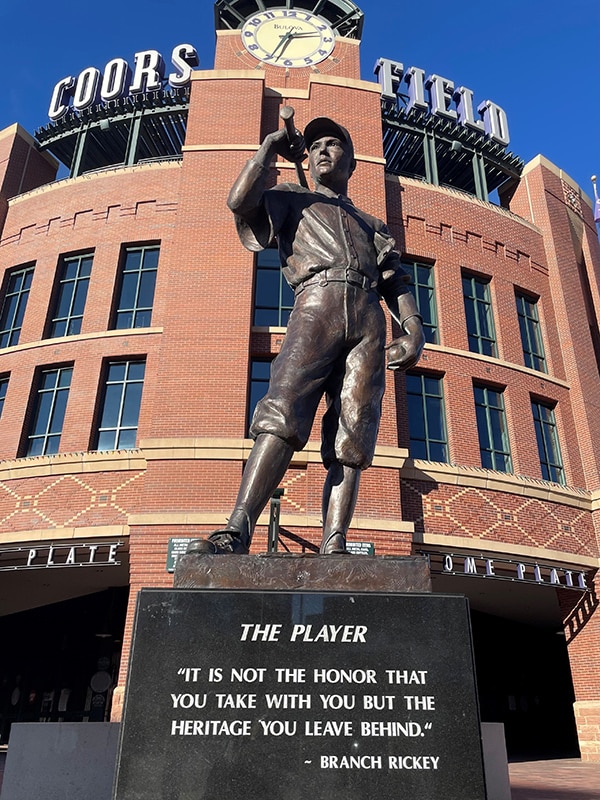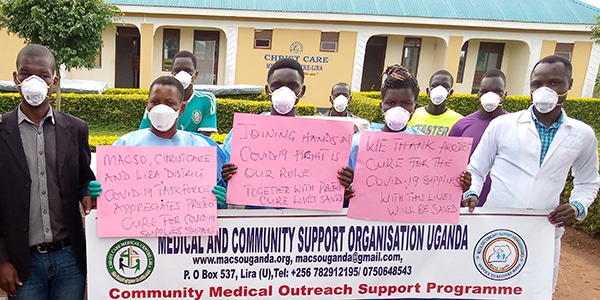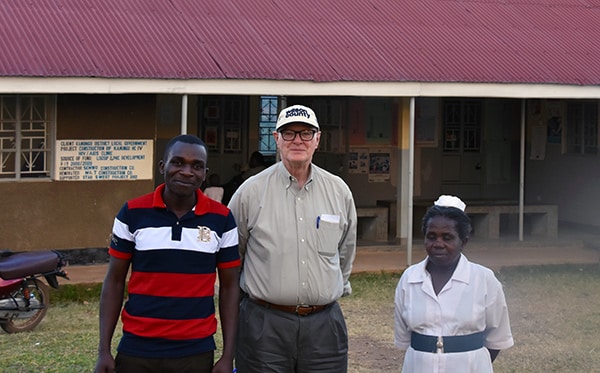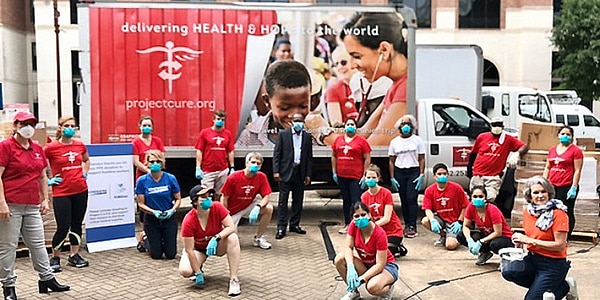Dear friends,
Standing well over ten feet tall welcoming fans at the front entrance of the Coors Field baseball park is a bronze statue named “The Player.” At the foundation is inscribed a quote from baseball’s Branch Rickey, the coach who hired the legendary Jackie Robinson and is credited with breaking the color barrier in professional sports: “It’s not the honor you take with you, but the heritage you leave behind.”

Amidst the unanticipated consequences in an otherwise chaotic and unpredictable world, the COVID-19 pandemic has created a space for us to pause and reflect about our lives and our legacy. Millions of people have quit their jobs and changed their careers to pursue a livelihood with more purpose. Thousands of families are reorganizing their lives, many leaving familiar communities to create a future with unknown streets and new neighbors. And countless hours have been spent in conversation exploring the questions around, “What really matters?”

I thought of that recently as I watched the teams of volunteers coming to the Project C.U.R.E. warehouses to sort and pack medical supplies and equipment for delivery to the people who need it the most. These are tough people responding to tough times and difficult situations. The past year and a half may have been some of the toughest times in our generation because of the global COVID-19 pandemic, relational fissures, economic tribulations and natural catastrophes. Through all that has been 2021, the selfless people of Project C.U.R.E. have shown up. Their work never ceased despite the ever-changing landscape of social distancing, mask mandates, vaccine campaigns and all of the rest of our pandemic reality.
Here’s what they know: the meaning of life lies in the service to others. Viktor Frankl discovered this in the depths of despair in a Nazi concentration camp, and he recorded his thoughts in the epic work, “Man’s Search for Meaning.” Albert Schweitzer found his purpose in bringing healthcare to a people living and dying along the uncharted coastlines of Gabon. And Branch Rickey found the truth of heritage on a baseball diamond.
Raymond White understood the notion of heritage. Raymond joined the Project C.U.R.E. volunteer team over a decade ago. He had retired from his profession as an engineer and was searching for something purposeful to which he could dedicate himself. We trained Raymond to conduct Needs Assessment studies. The Needs Assessment is one of the things that distinguishes Project C.U.R.E. in the arena of international healthcare. Before we send a C.U.R.E. Cargo container of medical relief, we visit the recipient hospital and learn about our partners and their work first-hand. Only then are we confident that we can provide appropriate donations, that our partners are trustworthy and that we can navigate the complicated regulations of customs and clearance.
Ultimately, Raymond completed 38 Needs Assessment trips as a volunteer for Project C.U.R.E. His travels took him into jungles to meet the village doctors who were locked in a struggle with life or death for their people. Africa. Asia. Latin America. It didn’t matter to Raymond. He would travel to freezing climates in the “Stans” or he would journey to the sweltering plains of the Sub Sahara. He was committed to the mission of “Delivering Health and Hope to the World.”

This year, we lost Raymond to a fierce battle with prostate cancer. I remember visiting with him in his well-appointed office in his Nashville apartment where he lived with his wife. We spent time appreciating his various collections of artifacts that he had gathered in his many travels. Engraved mortar shells from the Great War. Books. Art. Photography. Raymond loved people, and he loved his memories of the people he had touched. Toward the end of the conversation, when we had moved from our love of travel to a discussion of his diagnosis, Raymond shared in his low Tennessee drawl, “Doug, I believe Project C.U.R.E. helped save my life.” It was a curious thing to hear from a man with a terminal diagnosis.
What Raymond had discovered was the magic and truth of heritage. Soon, his fight would be concluded, but his life would live on through the thousands of people he had impacted. Because of his efforts, entire communities had been changed. As we like to say, at Project C.U.R.E. we don’t simply move the needle. We bend it off in the opposite direction.
Changing the course of history is precisely what our donors and volunteers do every day. We know from science and psychology that helping others increases good hormones like dopamine and endorphins (happiness) and reduces bad hormones like cortisol (belly fat). We know that it is important to invest in things that outlive our earthly bodies, and that humanity advances only when we build on our “cathedrals” that will last for generations.

It may have taken a pandemic to make us hit the “pause” button on the craziness of chaos. It may have required the discomfort of the past nearly twenty-four months for us to be reminded that we paint on a much larger canvas than our professions and possessions.
For those of us at Project C.U.R.E., this is our “why.” Every week, our teams meet in person and on Zoom calls. We can see one another’s faces and hear each other’s voices. And when we meet, we revisit the our commitment to saving the lives of people around the world. At no time has it been more important than now. We have fought the COVID-19 fight in our communities, and we are taking our fight to help the people around the world.
As this year draws to a close, my invitation to you is to join us in creating this heritage. Ours will be measured in the people whose lives we have saved, and the hours of suffering we have snuffed out. We may never know the names of the people or their specific circumstances. But we will know that we did what we could when it was needed the most. Not for the honor that we received. But for the heritage we left behind.
Thank you for your commitment to changing the world. We love and appreciate you now more than ever. And we wish you a wonderful 2022.
Most Sincerely,
W. Douglas Jackson, PhD, JD
President/CEO

